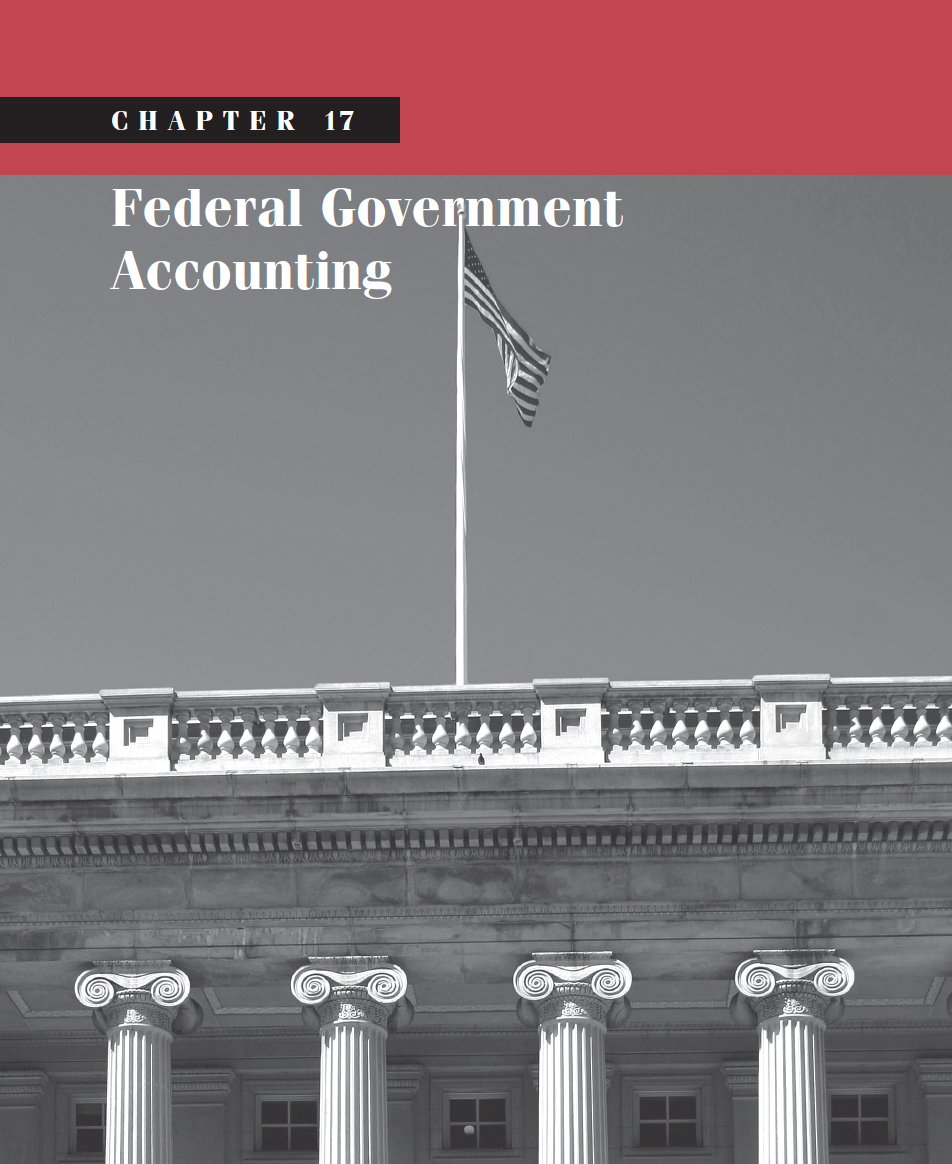
LEARNING OBJECTIVES
After studying this chapter you should understand:
- The unique characteristics of the federal government that necessitate special accounting and reporting practices
- The roles of the main agencies responsible for federal accounting and reporting
- The key objectives of federal financial reporting
- The concept of a unified budget
- The types of accounts maintained by the federal government
- What constitutes a federal reporting entity
- The form and content of government-wide financial reports
- The form and content of agency financial reports
- The main accounting issues addressed by the Federal Accounting Standards Advisory Board (FASAB)
- The recent efforts by the federal government to improve its fiscal management
- Recent trends in international accounting
The federal government is unique among U.S. institutions—and so, also, are its accounting and reporting concerns. Although obviously distinguishable by its size (expenditures for fiscal year 2016 are expected to exceed $4.5. trillion; actual expenditure for 2011 were $3.7 trillion), it also is differentiated by:
- The range of its activities (e.g., defense, Social Security and Medicare, and managing the money supply)
- The diversity of its resources (e.g., national parks and monuments, stores of gold bullion, and military hardware)
- The nature of its obligations (e.g., Social Security and Medicare benefits, loan guarantees, ...
Get Government and Not For Profit Accounting: Concepts and Practices, 6th Edition now with the O’Reilly learning platform.
O’Reilly members experience books, live events, courses curated by job role, and more from O’Reilly and nearly 200 top publishers.

